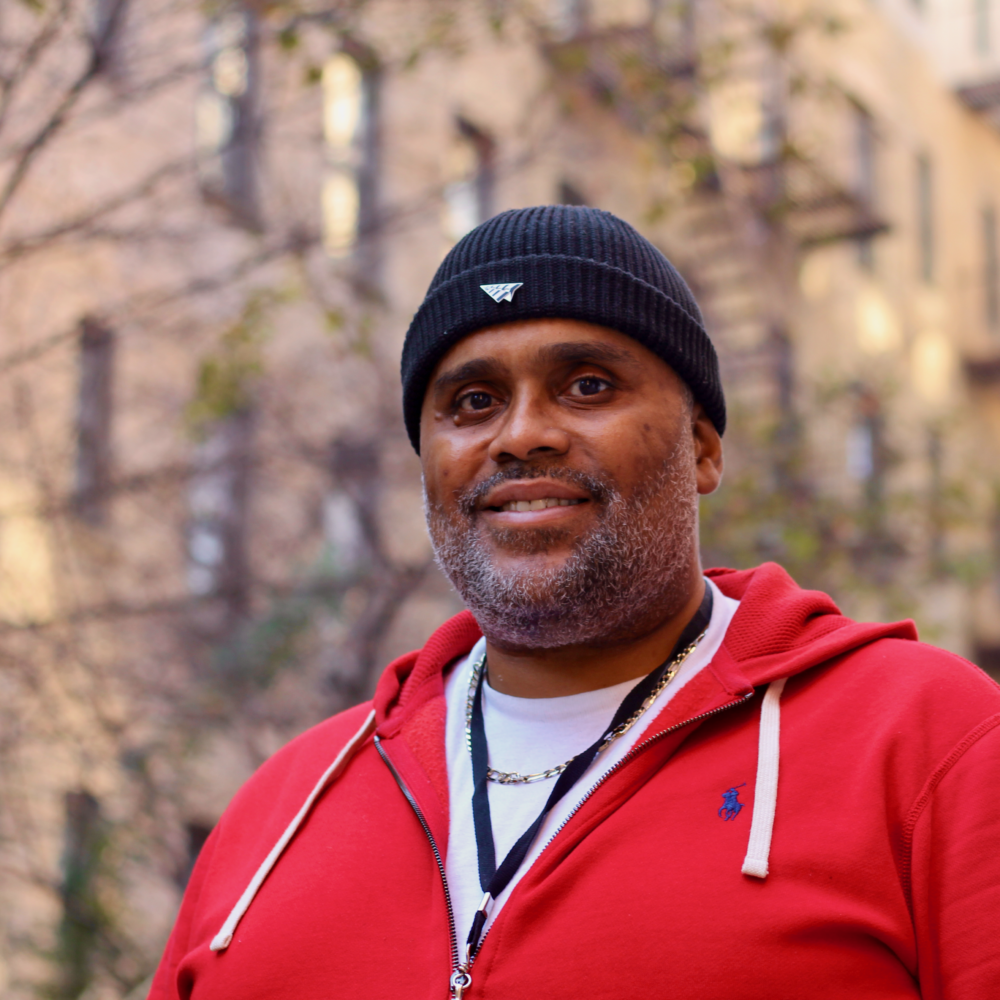
Jason Rice didn’t have the easiest start in life. His mom struggled with addiction. He was in and out of foster care as a child; he became a lonely kid who felt like he never fit in. As a teen he dropped out of school, began using and selling drugs himself, and eventually did jail time.
“I was the clear-cut perfect statistic,” he said wryly in the courtyard behind our West 140th Street residence. “Sometimes when I read the literature they give us for training, I feel like I’m reading my life story. And in some ways it’s helped me to come to terms with a lot of things I went through. Maybe I wasn’t broken.”
Rice wound up living on the street and was approached by Breaking Ground, one of our homeless outreach partners. The outreach team offered help with things like food, health care and housing. But before any of that could happen, Rice wound up spending months in the hospital with a serious illness. A hospital social worker looked up his file, saw his history with the outreach teams, and realized he was eligible for housing. When he was finally discharged, instead of being released back to the streets, he was able to go to a Safe Haven—temporary housing designed to help people move out of homelessness.
It was a turning point. “That was the beginning of coming out of the mental state I was in,” he recalled. “I started to see a way out.”
From the Safe Haven he began applying for permanent supportive housing. He was still so sick that he toured our residence on West 140th Street in a wheelchair. He liked what he saw: “It was just something about coming here and meeting the people. I felt welcome, I felt a positive vibe.”
Having a real home was another step on the road to recovery. “I began to feel like, you know what, I just don’t want to use today. So I’m not going outside,” he said. “I’ve finally got a place to just be safe and comfortable and watch a movie if I wanted to and not have to worry about all the drama in the street. So one day went to two days and three days. I started using less.”
Rice realized if he wanted to make lasting progress in his recovery, he needed more support. So he began going to a harm reduction group once a week at the residence. “They would come give out sandwiches and pass out Narcan”—a drug that reverses overdoses — “and have a talk with the residents.”
Harm reduction teaches people how manage their substance use to minimize its negative impacts. Rice entered a program to learn these techniques, and stopped for good.
He had a background in marketing and some writing experience. As soon as he got sober, opportunities began opening up. He trained to become a Certified Recovery Peer Advocate and help other people quit using. He took a job with the organization where he’d gone through treatment. Then he became a Harm Reduction Specialist and took a second job at a safe-use organization where he’d been a client. Then he got an offer from the methadone clinic he used to go to, so he took a third job for three hours a week.
“I’m working at every place I got treatment. That’s crazy,” he laughed. “It’s letting me know I did something right.”
Rice is grateful for the support he’s gotten at West 140th Street. “I know I did a lot of the work, but it was also the quality of the place that I went. The quality of Goddard, as a program,” he said.
“If anybody sees this, if they’re thinking about supporting Goddard or investing in their programs, I hope they do it.”